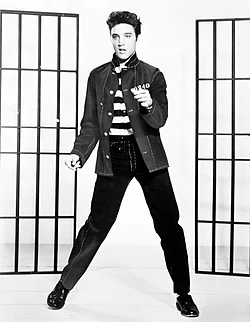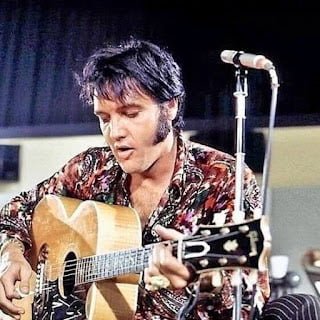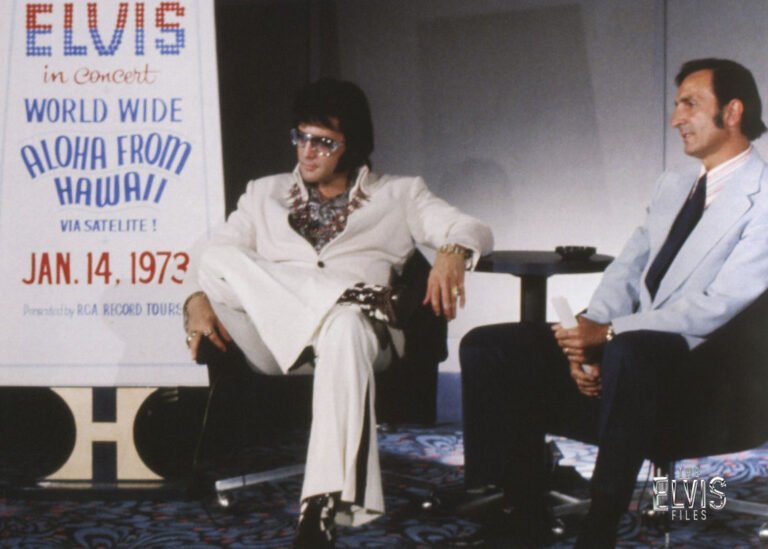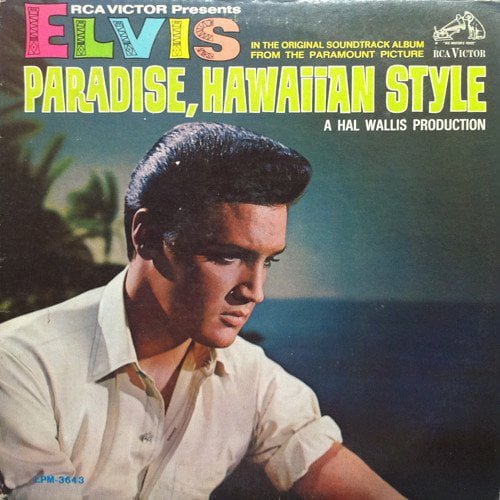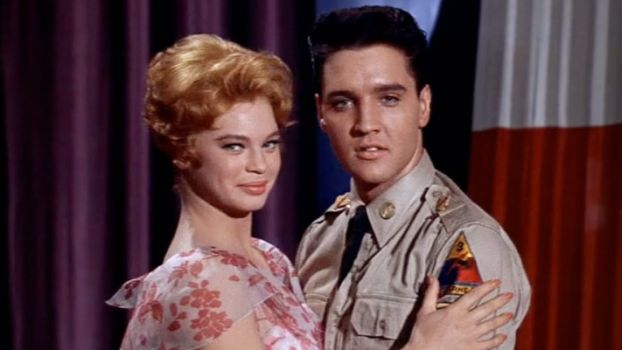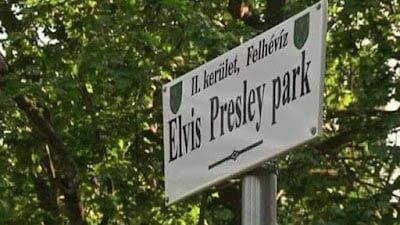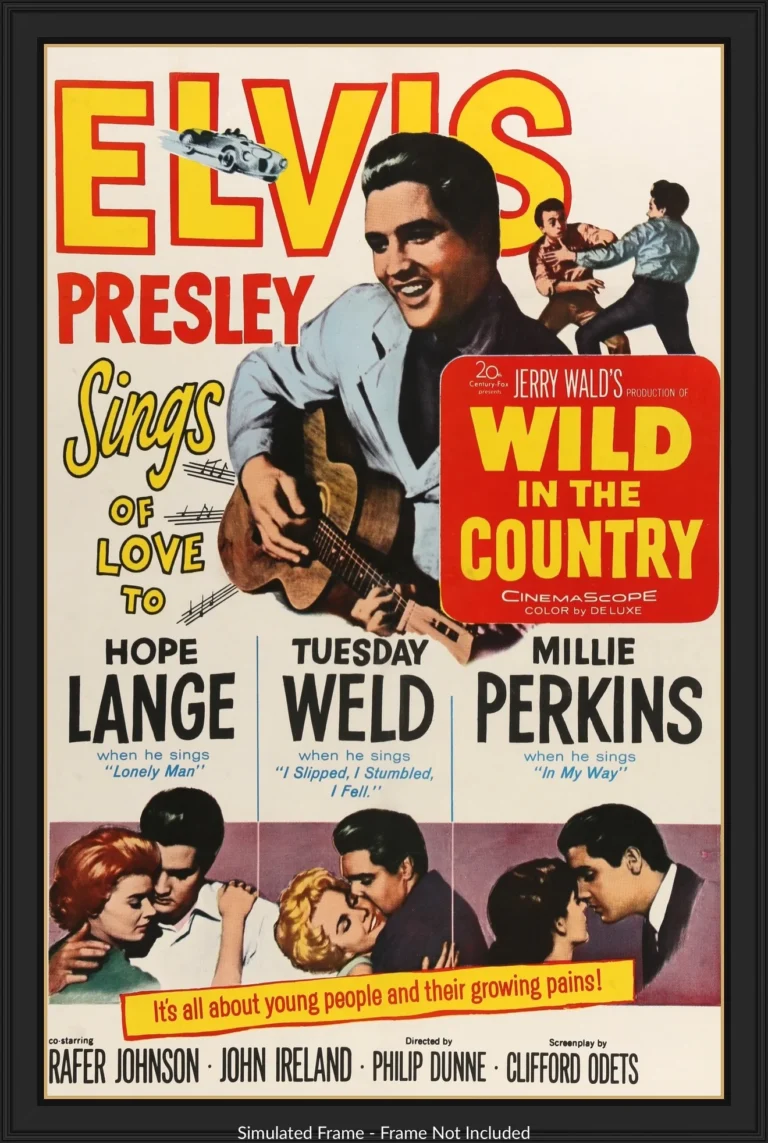
A MILE OF WISDOM
By Mahnuel Muñoz
When Elvis resumed at the end of the 1960s the cultural relevance that had been held since his beginnings and that had been diluted in Hollywood, he did so with a different approach, combining the necessary facet of showman with a confessional component that brought him closer than ever to his public and brought to light a humanity until then buried under the dense avalanche of its legend. After becoming the icon of rock and roll and the king of family cinema, Elvis found himself in the place where it all began, pure and uncompromising music. “If I Can Dream”, the anthem of brotherly love that closed the 1968 Comeback Special, extracted from the king’s bowels the promise of never again singing a song or playing a role in which he did not believe, and what is even more Importantly, he left us one of the many life lessons that make us grow as human beings if, beyond hearing him sing, we listen to him. “If I can dream of a better land, where all my brothers walk hand in hand, tell me why, oh why can’t my dream come true.”
That, and no other, is the path that Elvis’s footprints show us. Let’s travel together, there is room for everyone.
The Elvis who returned to the recording studios to leave his soul printed on the microgrooves of his records carried a message of love and unity greater and more authentic than that of the hippy movement. Far from getting lost in psychedelic universes, his speech was born from the most absolute earthliness, from the love between parents and children, friends and neighbors who shared sadness and joy at home, at work and in the neighborhood, people of different races, creeds and conditions with the same hope, the same fear, the same hunger, the same desires. And so, in the sessions held in 1969 at the American Studios – and even in his new recordings for films – among a dazzling sample of songs of love and heartbreak, odes to home and family were born (“Don’t Cry Daddy“, ” Mama Liked The Roses”, “Only The Strong Survive”), social dramas (“In The Ghetto”, “Long Black Limousine”, “Change Of Habit”) and reflective introspections in search of one’s own identity (“Who Am I ?”, “Stranger In My Own Hometown”, “True Love Travels On A Gravel Road” or “Without Love”). Of all the songs mentioned we can cite more than one inspiring phrase that has served us and continues to serve us today as a lifesaver in the stormy sea of ??human meanness, but now I think it is especially appropriate to remember verses from “True love…” and “ Without Love”:
“Through the years we have had difficult times and tears
But they only helped our love grow
And we will be together no matter how hard the wind blows” (“True Love…”)
“Without love I have nothing.”
Without love I have nothing at all
I have conquered the world
I’ve had it all but one thing,
Without love I have nothing at all”
(Without Love)
Remembering those truths every day and putting them into practice is the best tribute we can pay to Elvis Presley. It is of no use to be great and vehemently walk through streets paved with gold if your heart lacks kindness and empathy. Love moves along secondary roads, with potholes, cracks and gravel, but in the end they lead us to the desired destination: joy and peace of mind. And working with love, without investing a second in looking over your shoulder at your partner or disdaining their task, is the direct path to success, not so much a social success as a human success.
During the 1970s, the paradox arose that beneath his more effective appearance, Elvis offered more revealing and intimate art. In his concerts, along with recreations of classics from the ’50s and ’60s and very personal versions of the commercial hits of the moment, the king treated his audience to pieces full of messages that we could describe as autobiographical, among which stands out “Walk A Mile In My Shoes”, a composition by Joe South that had been well received on the sales charts since its release in January 1970 and of which versions by different singers were recorded, in addition to the one made by himself. composer.
The song is a plea in favor of racial tolerance, compassion and perspective, and in the current context it is still, fortunately or unfortunately, very relevant. Applied to Elvis’ own human and artistic nature, the piece is a direct message to his detractors, always eager to harmfully question each of the king’s steps or decisions. Likewise, it is a call to the world to see beyond appearances and social labels.
“If I could be you, if you could be me
For just an hour, if we could find a way
To enter the minds of others
If you could see yourself through my eyes
Instead of your own ego,
I think you would be surprised to see
that you have been blind
Walk a mile in my shoes
Just walk a mile in my shoes
Before abusing, criticizing and accusing
Walk a mile in my shoes
Now if we spend the day
Throwing stones at each other
Because I don’t think
Or I don’t wear my hair the same way you do
Well I can be common people
But I’m your brother
And when you hit
trying to hurt me
You are hurting yourself
Lord, have mercy
Now, there are people on reservations
and in the ghetto
And brother, there, by the grace of God
Let’s go you and me,
If only I had the wings of a little angel
Know?
I would fly to the top of a mountain
And then I would cry, cry, cry”
The song is performed by Elvis with the joy of a noble soul, the mettle and authority of a singer-songwriter, the truth of a fighter whose wounds have not yet healed and the fire of an idealistic young leader eager to share his gift with his family, with his flock and with humanity, and leave his mark not only on the history of the world, but also on the emotional map of each individual who comes into contact with the art of the son of Tupelo. The message contained in Joe South’s verses exorcises the demons and summons the angels of Elvis Presley, and exposes the man and the musical deity in a single body, on stage, giving us a lesson that we must not forget if we want the world be a better place, and which can be summarized in “Men With Broken Hearts”, a composition by Hank Williams, which Elvis partially recited on stage:
“You have never walked in that man’s shoes,
Nor did you see things through his eyes,
You didn’t even stop to look with your defenseless hands
While the heart inside you dies.
So help your brother on the way,
It doesn’t matter where you start,
Because the God who made you also made
To these men with broken hearts”
It is never too late to take the right path: that of harmony, respect and cooperation. If we don’t understand this, then we don’t understand Elvis, no matter how much we like to follow him.
Article written and provided by Mahnuel Muñoz
If you want to visit more articles about the life of Elvis Presley, enter the following Elvis Radio 24h link: https://elvisradio24h.com/tag/articles Thanks TCB ?
We remind you that you can also listen to Elvis Radio 24 hours on your mobile phone by downloading our free applications for Android in the Play Store ? https://play.google.com/store/apps/details?id=com.icreo.elvisradio24h1, and for iPhone in your Apple Store ? https://apps.apple.com/app/elvis-radio-24h/id6444257119. Thank you very much!!…
